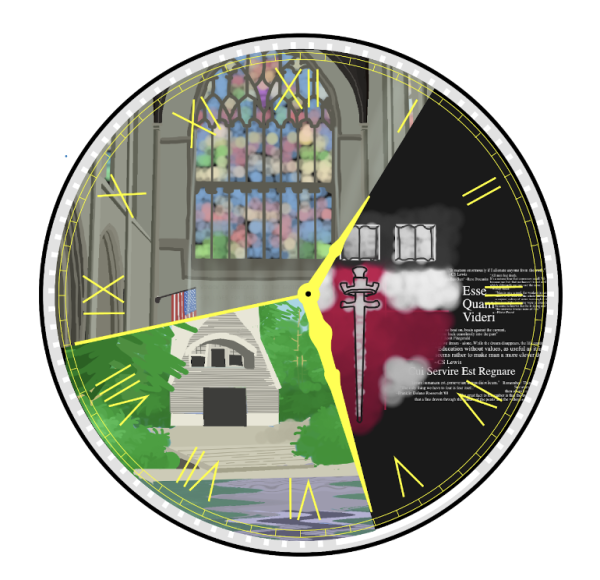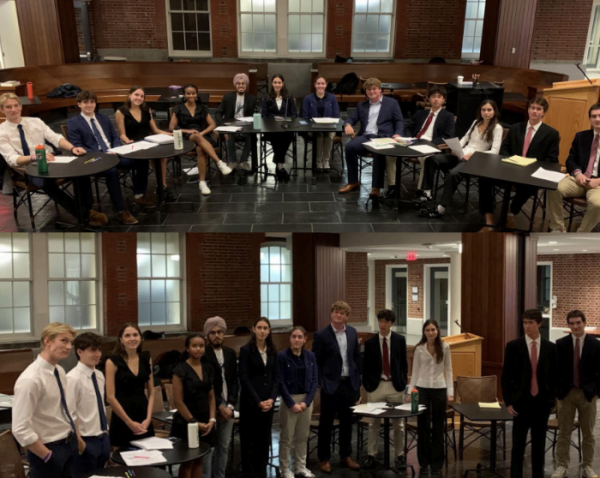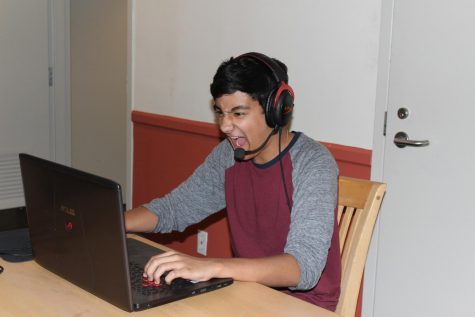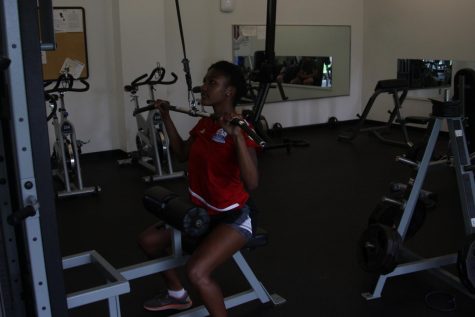Groton Alum Tackles Mental Health in a Prep School setting
On Tuesday, January 23, Mitzi Brockman ‘83 and Kristy Hommel came to Groton to speak about their experiences with mental health. The two are part of the In Your Own Voice initiative started by the National Alliance on Mental Illness (NAMI). They, along with others involved in the organization, travel to prisons, schools, and other institutions to share their personal stories with mental illness in their own words. They hope to help destigmatize mental health by humanizing their illnesses. Ms. Brockman wants people to know that “there are people like [her] living with mental illness and it’s not just a stereotypical idea of a homeless person on the street.”
The process that brought the pair to Groton was that Mitzi, an alumnus, reached out to Director of Communications Gail Friedman to find out what Groton was doing to address mental health issues and to share her story with Ms. Friedman. Ms. Friedman thought counselor Sheila Fritz-Ellis would be interested in talking to Mitzi so she connected the two of them. At the same time, Groton Workplace Wellness committee member Peggy Duffy reached out to Ms. Fritz-Ellis to see if she knew anyone who could come to Groton to talk about mental illness as part of the staff wellness program. Ms. Fritz-Ellis then contacted Mitzi and began working to get her here.
The pair’s visit to Groton was their first time delivering a presentation to a boarding school. “Really we’re here because I went here and I reached out,” says Ms. Brockman. Both of the lecturers remarked that the resources available to Groton students now were not available at their own boarding schools thirty-five years ago. “We had a counselor, Birch Ford,” she remembers. “She was the one counselor for the school and she was the only person we could go to if we needed someone to talk to. It was just her.”
Ms. Brockman was especially curious to hear about Groton’s peer counselor program. “We had our prefects in our dorm but we never talked about our feelings,” she says, adding that “from what I have seen at Groton there has been a significant increase of resources available to students.” The two both hope that by delivering their own stories, someone might recognize their own self in their words. “Whether they are somebody suffering with mental illness, whether they are somebody who knows somebody suffering, my hope is to just reach at least one person, just through sharing what I’ve gone through,” says Ms. Hommel. “That is always our hope, that we’re going to reach one person in these. And often we do,” adds Ms. Brockman.
Ms. Brockman shared her struggle with bipolar disorder, which has affected her since her high school years. She explains that she did not know she had a mental illness while attending Groton because issues were not talked about to begin with, and she did not have any classification to describe the way she felt. Ms. Hommel explains that, during her own boarding school experience, she knew something was wrong but did not know what. “There wasn’t really a protocol at my boarding school. I was struggling with self injury, and it just wasn’t talked about. It wasn’t something that people knew even really existed,” she recounts. “My hope is that faculty can hear what it’s like to a student, to be that young, to be that confused, and understand that there are a lot of different perspectives and ways that people can support each other.”
Ms. Friz-Ellis thinks the most important thing Misty and Kristy said to students was that acceptance of the mental illness is the first step to getting well. Kristy knew her diagnosis at age thirteen and was in treatment, but it wasn’t until she was 31 years old, when she accepted her diagnosis, that she could really engage in her treatment. Mitzi knew her life was a mess and something was wrong but she didn’t know what to do about it until she was diagnosed in her forties. At that point she knew what type of help to seek, and began to get well. Ms. Friz-Ellis says that one thing they both said that resonated with her for Groton is that it takes constant work to stay healthy. It is a combination of both physical and psychological self-care and self-monitoring. She says that the Groton community needs to do a better job with sleep and nutrition in order to establish better mental well-being for all students.
Peer Counselor Macy Lipkin ‘18 said that she was glad Mitzi and Kristy shared their personal stories, and that she “hope[s] that anyone who is suffering will know they’re not alone.” She was happy the talk discussed mental health so openly, and hopes that it will help “generate awareness and, hopefully, de-stigmatize mental illness.”
The pair’s advice to students confused about separating stress and homesickness with mental illness is to listen to themselves. “Pay attention to how you’re feeling,” Ms. Brockman says. “There is a difference from being sad and stressed versus being depressed and anxiety-ridden. And there’s ways to tell the difference. If you sad and it’s because something happened, that’s sadness. But depression is more characterized by long term sadness, deep sadness that isn’t caused by anything. And that’s why we’re here. To help educate you guys about the other things.”









